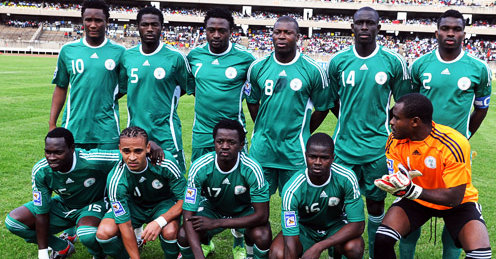
European clubs own more than 80 percent of Africa’s World Cup players. Final squad lists show that 112 of the 138 players are based in Europe and one in Asia (Qatar). Nigeria’s entire team is made up of players competing in nine different European countries!
Let’s break down the rest. Ivory Coast: 22 out of 23 (in 11 European countries); Cameroon: 22 out of 23 (9 countries); Algeria: 20 out of 23 (9 countries); Ghana: 19 out of 23 (9 countries); South Africa: 7 out of 23 (5 countries). The Big 5 leagues — England, Spain, Italy, Germany and France – capture the lion’s share of Africa’s World Cup players, 70 percent to be precise.
South Africa represents an anomaly due to its well-endowed Premier Soccer League, ranked in the Top 10 of the world’s richest leagues. If we were to take South Africa’s team members out of the equation, then 93 percent of Africans in this year’s World Cup are based in overseas clubs. And five of the nine players still playing club football in Africa are goalkeepers.
‘After the flight of brains Africa is confronted with the muscle exodus,’ noted Issa Hayatou, President of CAF. ‘The rich countries import the raw material — talent — and they often send to the continent their less valuable technicians. The inequality of the exchange terms is indisputable. It creates a situation of dependence and the impoverishment of some clubs . . . and of national championships.’ Paradoxically, the more African superstars like Drogba shine in Europe’s elite leagues, the more likely everyday football on African soil will suffer.
Author: Peter Alegi
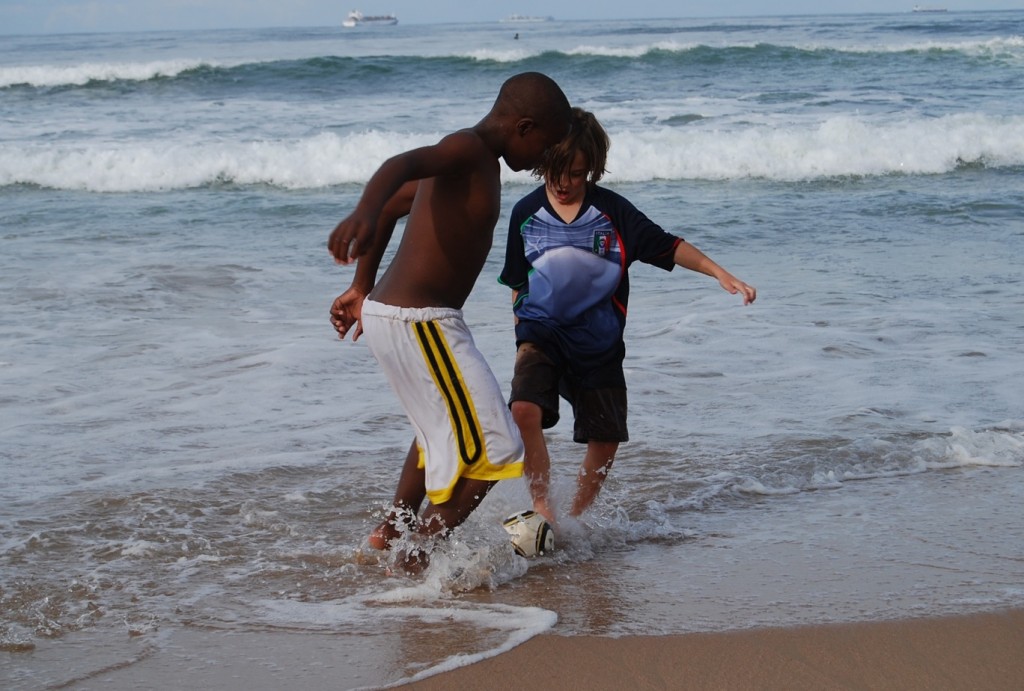
This weekend football authors Simon Kuper and David Goldblatt published the kind of book reviews that warm an author’s heart.
“Nobody understands the background to African soccer better than the Italian-American historian Peter Alegi,” writes Kuper in the Financial Times. “This World Cup is his moment. His African Soccerscapes crams daunting erudition, gleaned over many years of study of African football, into under 200 pages of history.” Click here to read Kuper’s review.
In The Observer, Goldblatt wrote: “Peter Alegi’s African Soccerscapes is simply the best available overview of the history” of the game on the continent. Click here to read Goldblatt’s review.
Given the good news, today seemed like a perfect day to go to Durban, pick up our World Cup tix and spend the afternoon playing beach football.
African Soccerscapes Launched in SA
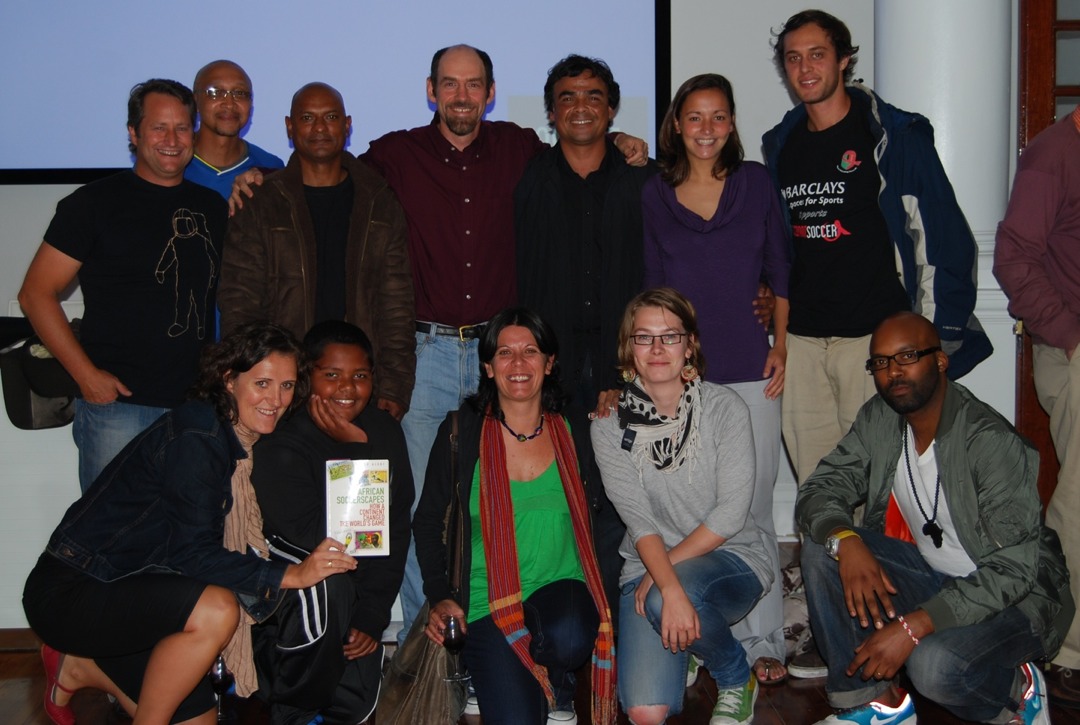
What a great ride! Launched my book African Soccerscapes: How a Continent Changed the World’s Game in Joburg, Cape Town (in photo), and Durban over the past week and a half. Met so many amazing people from all walks of life and broke bread with old friends. The quality of the discussions was very high, with deep engagement on history, culture, politics and everything in between. Was extraordinarily privileged to have Sedick Isaacs of the Robben Island Makana Football Association as a guest of honor in Cape Town and the US Consul General, Jill Derderian, in attendance in Durban.
Been doing lots of press interviews, including one with the New York Times. Made TV appearances on SABC 2’s Weekend Live (thanks Lebo!) and CBC News too. Now that the blog is back up (finally!), I look forward to more thinking with my feet from African soil. Phambili!
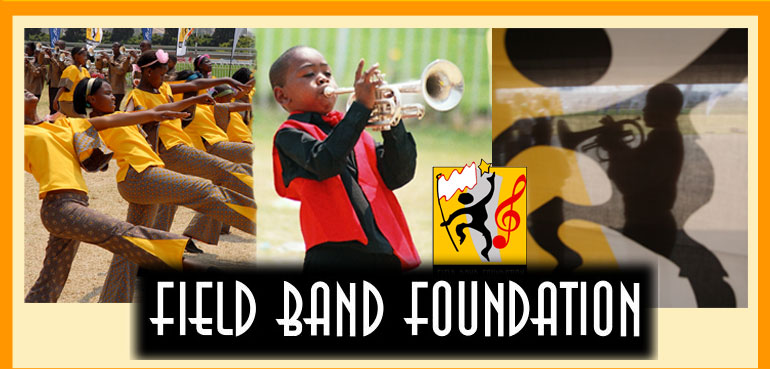
The Field Band Foundation — an innovative, exciting South African NGO focused on youth development through show bands — will perform at the opening and closing ceremonies of the 2010 World Cup. On top of that, FBF will also be performing at the Fan Parks, open spaces and many other events around the World Cup. FBF integrates music with life skills training. It works with young South Africans who, through poverty, still suffer from the injustices of the past.
Click here to download FBF music.
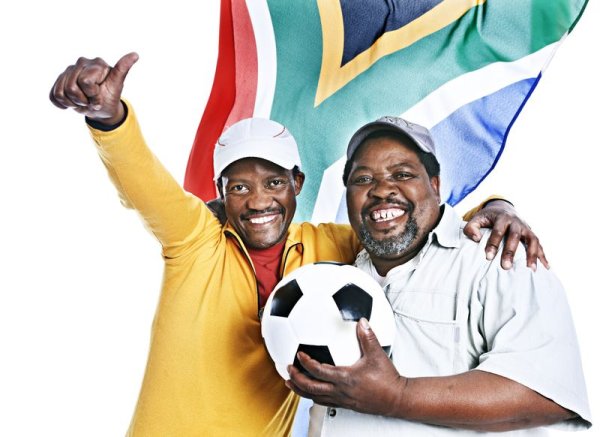
There’s nothing like this: the German Academic Exchange Service‘s ‘Extra Time’ soccer lecture series. It links the two host countries of 2006 and 2010, and celebrates the first ever World Cup on African soil. Featuring German, South African, and international scholars, the eight lectures aim to inspire public debate on the social and cultural dimensions of football. The events take place in World Cup host cities which are also university cities.
On Friday, 7 May, the focus is on ‘Soccer and History’. I will speak about African Soccerscapes, Philip Bonner (Wits University) on the game’s past in the Johannesburg area, Sedick Isaacs on soccer in Robben Island prison, Christiane Eisenberg (Humboldt University Berlin) on the history of FIFA.
The event is free and open to the public. It kicks off at 9:30 a.m. in the Senate Chamber, University of KwaZulu-Natal, Durban Westville Campus.
Click here for the complete schedule of the German-South African Soccer Lecture Series.
New Book: African Soccerscapes
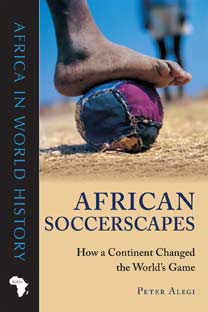 Released ahead of the 2010 World Cup in South Africa, my new book African Soccerscapes tells the little-known story of football in Africa. Published by Ohio University Press in North America and Hurst & Co. in Europe and Africa, the book is both a history and an examination of the connections between sport and society. Using case studies from around the continent, I show how Africans appropriated soccer from Europeans and turned it into a distinctively African activity during the twentieth century.
Released ahead of the 2010 World Cup in South Africa, my new book African Soccerscapes tells the little-known story of football in Africa. Published by Ohio University Press in North America and Hurst & Co. in Europe and Africa, the book is both a history and an examination of the connections between sport and society. Using case studies from around the continent, I show how Africans appropriated soccer from Europeans and turned it into a distinctively African activity during the twentieth century.
African players, fans, and officials challenged colonial power and expressed a commitment to racial equality and self-determination. In postcolonial times, new nations staged matches in national stadiums as part of their independence celebrations and joined FIFA. The Confédération Africaine de Football democratized the global game through antiapartheid sanctions and increased the number of African teams in the World Cup finals.
African Soccerscapes analyzes the causes and effects of the departure of huge numbers of African players to overseas clubs and the dominance of commercial interests in local leagues. Finally, a consideration of the growth of women’s soccer and South Africa’s hosting of the 2010 World Cup challenges the one-dimensional notion of Africa as a backward, “tribal” continent populated by victims of war, corruption, famine, and disease.
Look for stories from African Soccerscapes on this blog, as well as news and updates about book events, talks, media coverage and more.
Vuvuzela 1 PSL 0
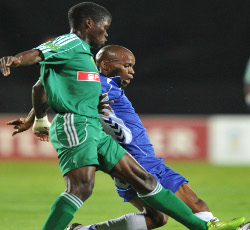
A family night out with 6,000 friends. Maritzburg United vs Amazulu: KwaZulu-Natal derby in the round of 32 of the Nedbank Cup, South Africa’s FA Cup. At kickoff, deafening kwaito music gives way to a cacophony of vuvuzelas. Not exactly kid friendly, but there it is. The relaxed mood of this Saturday night crowd, a pleasant mix of men, women and children of all backgrounds, makes up for the dreadful football on display.
The home side is slightly more enterprising in the second half, but deep into injury time the visitors’ Brad Ritson scores a counter-attack winner. Cruel. Final.
As we, the deflated masses, leave the friendly confines of Harry Gwala Stadium, I found myself wondering — again — why PSL teams played such awful soccer on a regular basis. Then I thought of the wisdom shared by Thabo Dladla, director of Izichwe Youth Football (where my daughter plays), in his column this week:
‘The idea of playing and keeping the ball longer does not exist . . . [with] less than 100 completed passes in most PSL matches’ Dladla writes, ‘I doubt if Lionel Messi would have played under most South African coaches. [In the apartheid era] football played a huge role in entertaining people. It was important to win in style. Both players and fans had a lot of fun during a game. These days one sees more creativity in the grandstands than on the field’. And as much as I viscerally detest the vuvuzela’s sonic pollution, it is the truth.